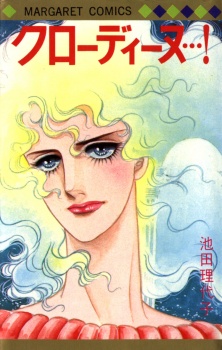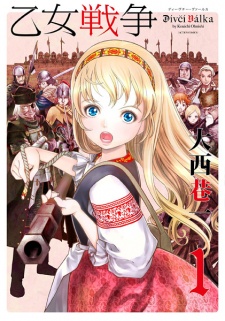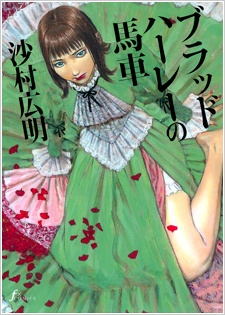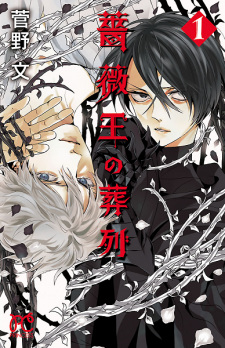Jul 14, 2020
Some of my reviews express the idea that nothing in our world is a lone island. And I had mentioned in a previous one that Ikeda’s prominent example of her promoting France in Japan was Rose of Versailles, to which another work I mentioned was linked: Glory of Napoleon. Unfortunately, I found translations neither in English nor in French. Instead, I discovered an English translation of “Polish Secret History: Until the Borders of the Sky”, that is in turn linked to Glory of Napoleon. And here I am, reviewing this obscure find.
[1. Starting with the story…]
Set during 18th and 19th century in the Polish-Lithuanian Commonwealth,
...
the story is in bildungsroman fashion, and meant to commemorate the life of a historical figure, Polish prince Józef Antoni Poniatowski. The American and French Revolutions hold value for the first part of the narrative, and so do power struggles between Russia, Prussia and Austria, that culminate in the division of Poland. Poland had entered a period of decline, its independence being threatened by major powers and the matter being complicated by internal divisions that undermined governance.
In order to safeguard his motherland, Józef is raised as a patriot and educated in military studies and European languages, even serving as an Austrian officer to acquire combat experience. Many of his compatriots devoted likewise their lives, but their visions could be conflicting, an example being his childhood friend Tadeusz Kościuszko.
~~~ Fun fact: Tadeusz Kościuszko became a national hero in Poland, Lithuania, Belarus… and the USA. He is one of two Europeans serving in the American Revolutionary War portrayed by Riyoko Ikeda (alongside Axel von Fersen). ~~~
The second part of the narrative is connected to Napoleon Bonaparte, who promises freedom to the divided and subjugated Poles. After their endeavor to secure an alliance with him, he restores independence by founding the Duchy of Warsaw, in order to secure more allies for his campaign in Russia. From this point, Józef is deeply involved in the Napoleonic Wars as a Marshal of the French Empire. Anything more will head towards spoiler territory.
[2. Continuing with characters…]
[a.] The protagonist is the son of Andrzej Poniatowski and a fictional Russian woman named Natasha Suvorova (sharing a name with the daughter of general Alexander Suvorov). Andrzej managed to convince his relatives that Józef was born from a secret marriage to Teresa von Kinsky, at first not approved because her family was not very rich. However, this occurred before 1761 (when they married), yet real-life Józef was born in 1763, and also had a sister named Maria Teresa. Instead, he is portrayed as illegitimate issue and von Kinsky as a wicked stepmother with a (fictional) biological son named Felix Poniatowski, who made Józef’s childhood miserable and affected his growth as a person and patriot. I disagree with those creative liberties, although Józef is a complex and interesting character, with many phases and development.
[b.] The cast is mostly composed of famous historical figures such as Czarina Catherine II of Russia, alongside less-known ones such as Maria Walewska (known as the Polish mistress of Napoleon) and Henrietta de Vauban. Though not overly complex, all play their given roles decently, be it as sources of conflict, part of the intrigues or as benefactors of Poland.
[3. Concluding with the artwork and personal impression…]
[a.] In comparison to the artwork of Rose of Versailles, PSH’s artwork is improved in a technical level, justified since Ikeda penned and illustrated it almost 20 years after completing the first. It is quite rich in details (be it characters or backgrounds) and its shading is also more advanced, bringing into life a rare and exotic setting.
One of my favorite panels is drawn after the famous painting “Coronation of Napoleon”, by Jacques-Louis David. Also, paneling is structured without always following the same format, thus allowing for interesting contrasts and transitions between scenes.
[b.] Overall, PSH was enjoyable because of its rare setting and mature story, though not rare concerning premise of a struggle of an oligarchy for political survival, in the midst of broader geopolitical games. Also, if it were as long as Rose of Versailles, it would be a masterpiece beyond measure.There were insufficient chapters to establish a more complex cast and portray daily lives of separate classes (e.g. developments on serfdom were barely referenced). Nonetheless, it’s successful in expressing this: French, American and Russian history was also Polish history, and likewise Polish history was also French, American and Russian.
Hope you enjoyed my review!
Reviewer’s Rating: 6
What did you think of this review?
Nice
 0
0
Love it
 0
0
Funny
 0
0
Confusing
 0
0
Well-written
 0
0
Creative
 0
0Show all
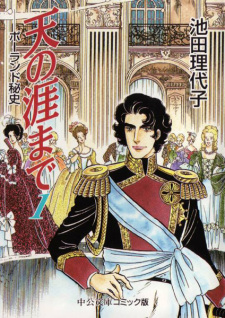
 (1).png)



